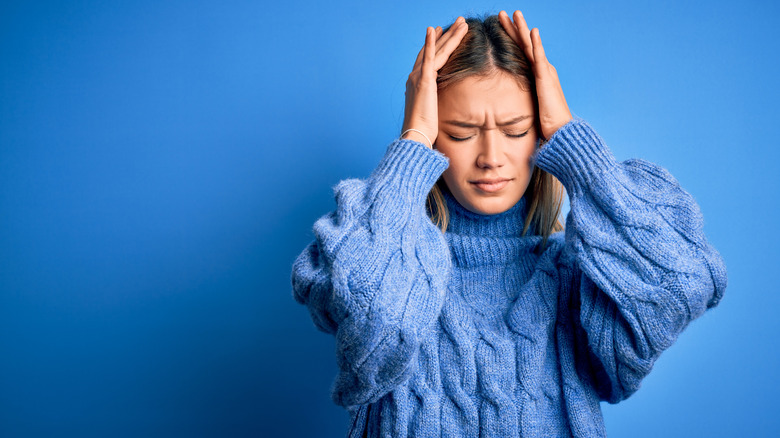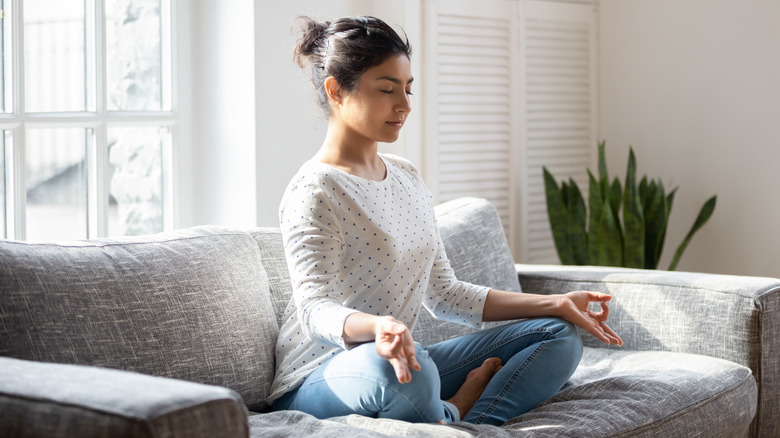Are Stress And Anxiety Blocking Your Nutrient Absorption?
We've all heard that making sure you choose a diet that's right for your body type, genetics, hormone health, and other factors is super important when it comes to getting your fair share of vitamins and minerals. But nutrient intake doesn't start and stop with what's on your plate. Without a doubt, lifestyle — especially stress and anxiety — plays a role in our overall health. Though the research has been around for years, more and more people are beginning to wake up to how dangerous they are in terms of our health goals. Research suggests that stress and anxiety are literally blocking the body's ability to absorb nutrients.
Nutrition expert Elise Museles told Mindbodygreen that if you're stressed out when you sit down to eat, it doesn't even matter if you have a plate filled with kale, quinoa, salmon, and avocado. Your body simply won't receive all the nourishment those foods have to offer. "What's happening in your mind is just as important as what you're tossing into your grocery cart," she added.
The difference between stress and anxiety
According to the National Institute of Mental Health, stress and anxiety aren't the same thing, but both can impact your mental health. Stress is caused by external factors like getting into an altercation or having to take a big exam. Once the external situation is resolved, the stress goes away. In addition, stress isn't always a negative experience. It can be a motivating factor, for example, but too much of it is bad for you and can result in physical symptoms. Anxiety is an internal reaction to stress that usually doesn't go away. As a result, it interferes with other aspects of your life. Like stress, anxiety can also manifest physically. Symptoms of both include excessive worry, uneasiness, tension, headaches, body pain, high blood pressure, and losing sleep.
There are several things you can do to help manage stress and anxiety. Keeping a journal, exercising, eating healthy, sticking to a sleep routine, and avoiding excessive caffeine can help. Even downloading apps dedicated to meditation, breathwork, or cognitive behavioral therapy is beneficial, according to Healthline. Reaching out to friends and family, working through mental challenges, and seeking out therapy can also help you cope.


